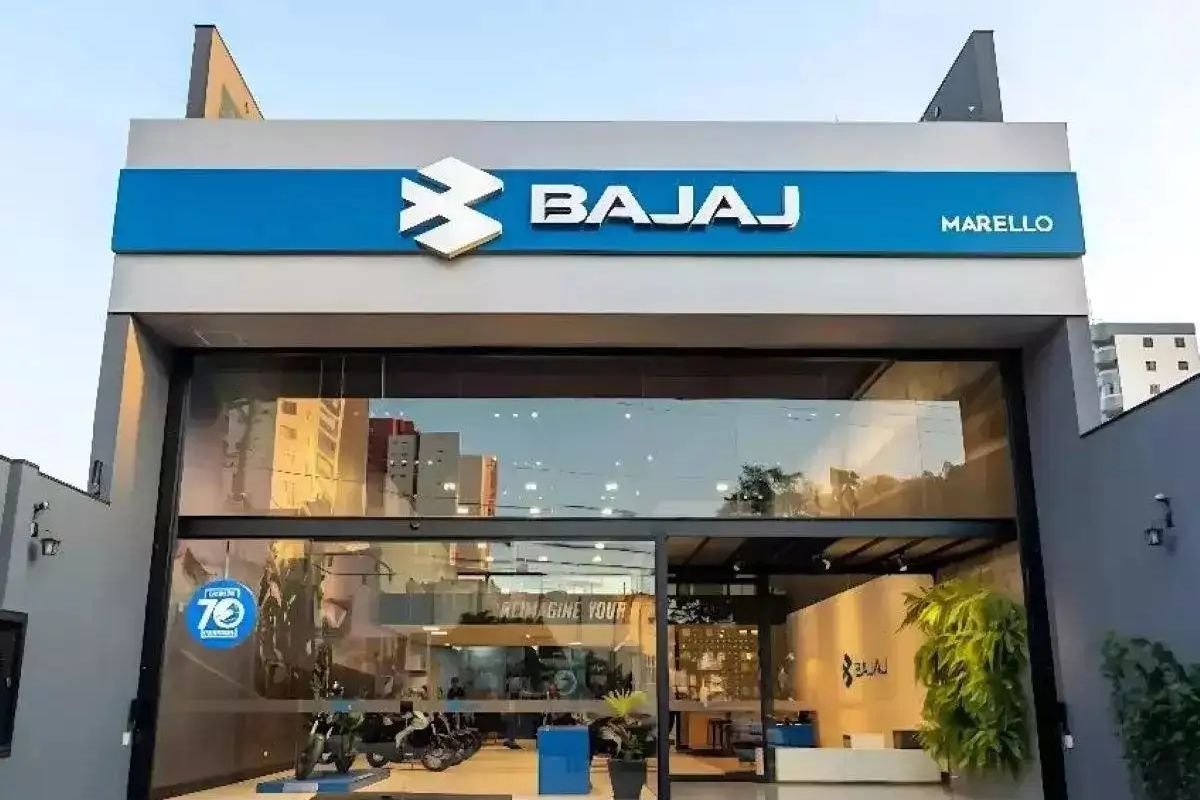Bajaj Auto Q1 FY26 results show a 14% year-on-year rise in consolidated net profit for the first quarter of FY26, reaching ₹2,210.44 crore. The company’s revenue from operations grew 10% to ₹13,133.35 crore. Despite volatile domestic demand and electric vehicle (EV) production hurdles, strong export performance helped stabilize the company’s financials, underscoring its resilience in a shifting market.
Mixed Sales Performance with Export Boost
In Bajaj Auto Q1 FY26, the company sold 11.11 lakh units, up 1% from the 11.02 lakh units sold in the same period last year. While domestic sales declined 8% year-on-year to 6.35 lakh units, exports jumped 16% to 4.76 lakh units. Notably, commercial vehicle (CV) exports surged 32%, and two-wheeler exports rose by 14%, largely driven by improved demand from Latin America and Southeast Asia.
Management noted that refreshed product offerings and strategic pricing contributed to this rebound. This offset softness in the Indian market, where ongoing inflation and weak rural demand continue to affect consumer sentiment in the two-wheeler segment.
Supply Chain Challenges in Electric Vehicle Segment
Bajaj Auto has scaled back production of its electric two-wheelers by up to 50% in July due to a global shortage of heavy rare earth magnets, an essential component in electric motors. The disruption stems from China’s suspension of magnet exports since April, creating bottlenecks for EV manufacturers worldwide.
The company expects constrained production to continue through August and September. In a post-earnings call on August 6, Bajaj Auto announced plans to mitigate these challenges by exploring the use of light rare earth alternatives and investing in R&D to develop magnet-free technologies.
Market Response and Analyst Outlook
Following the Bajaj Auto Q1 FY26 earnings announcement, Bajaj Auto’s stock experienced intraday volatility on August 7, falling as much as 4% before recovering to trade slightly higher at ₹8,202 on the NSE. Year-to-date, the stock remains down 7%.
Brokerages remain optimistic. Bernstein maintained its “Outperform” rating with a target price of ₹11,000, citing the company’s balanced business model and export-led stability. CLSA also reiterated an “Outperform” rating but lowered its target to ₹9,971, noting that while export recovery is encouraging, volumes are tracking slightly below the company’s FY26 guidance of 15–20% growth.
Analysts believe Bajaj Auto’s diversified portfolio, spanning ICE and electric vehicles, domestic and export markets, offers insulation against sector-specific volatility. Continued investments in innovation and market expansion are expected to support long-term growth.
Conclusion
Bajaj Auto Q1 FY26 results highlight the company’s adaptability amid fluctuating demand and global supply chain constraints. While domestic headwinds and EV component shortages remain concerns, robust export performance and strategic planning have helped the company maintain profitability and investor confidence. Going forward, Bajaj Auto’s ability to navigate supply challenges and capitalize on global demand trends will be critical in shaping its FY26 trajectory.
Visit more of our news! Business Viewpoint Magazine.






